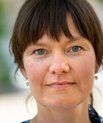New method offers a new window into children’s memory
Small children find it difficult to remember their experiences - or do they? Danish researchers have found a new method for exploring this question.

When small children are asked about events which they have experienced, they often find it very difficult to recount these. Until now, this has led researchers to believe that children under the age of four have no episodic memory.
However, this assumption was questioned by professor Peter Krøjgaard and his colleagues, associate professor Osman S. Kingo and professor and centre director Dorthe Berntsen from Con Amore, the Department of Psychology and Behavioural Sciences, Aarhus BSS. In 2014, they succeeded in developing an experimental method for getting children of just three and a half years to spontaneously account for an event which they had experienced.
“It is still too early to conclude anything about children’s memory, but we have found a new window to look through,” says Peter Krøjgaard.
With a DKK 5, 9 million grant from THE VELUX FOUNDATION, the researchers are now able to continue working with the method and among other things explore the memory of even younger children.
Spontaneous memories in the laboratory
Researchers have long wanted to explore the spontaneous memory of children. Not least because it is a phenomenon which most parents have experienced - that their children spontaneously start talking about a previous event. These kinds of memories are rather difficult to explore in a laboratory as they are indeed uncontrollable and spontaneous - appearing almost out of the blue.
In the new method, children are presented with an exciting and unique event which they have not experienced before. This could be a machine that appears to be able to shrink things. Weeks later, children and parents return to the same room. Instead of questioning the children, the conductor of the experiment leaves the room, while the parents have been instructed not to say anything.
What happens next is that some children of just three and a half years spontaneously start talking about what they experienced the last time they were in the room.
Challenges classic theories
The new method challenges the classic theory that children under the age of four are unable to remember their experiences. A theory which, according to the Danish researchers, is partly a logical result of the method so far applied in the study of children’s memories.
In most studies, children have been asked directly as to what they can remember. This means that the children must actively and strategically search for and recall memories. This requires the use of the frontal brain lobes, which develop relatively late. This means that when children struggle to remember, it may be because they are struggling with the process of finding the memories and not because the memories are not there at all.
“Dorthe Berntsen’s theory is that spontaneous memories are cognitively less demanding as they are mainly recalled via associations. Spontaneous memories require less use of the frontal brain lobes. There is thus every reason to believe that small children have these memories.” says Peter Krøjgaard.
The possibility for systematic research
Up until now, researchers have shown that spontaneous memories may be recalled experimentally provided that there is almost a complete overlap between the clues present at the children’s first and second visit to the laboratory - same room, same objects and furniture, same person conducting the experiment. But the researchers do not know which of these clues are decisive for the spontaneous recollection.
“This is where the new experimental method becomes crucial, because only these kinds of experiments allow us to systematically explore which of these factors make a difference,” says Peter Krøjgaard.
The researchers are also working on how to explore the spontaneous memory in children who are even younger. This requires that they develop methods which are independent of the children’s language.
Contact
Professor Peter Krøjgaard
Department of Psychology and Behavioural Sciences - Con Amore
Aarhus BSS
E-mail: peter@psy.au.dk
Direct tel.: +45 87165861







